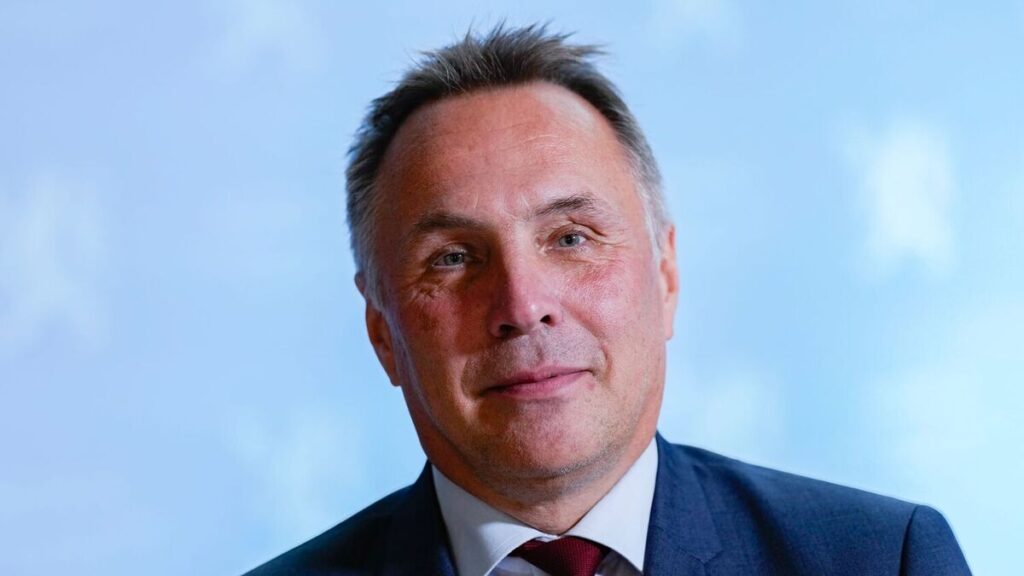Norway Reaffirms US Commitment to European Defence
Norwegian Defence Minister Tore Sandvik has expressed confidence in the United States’ ongoing commitment to European security, while emphasizing that European nations must shoulder a larger portion of their own defence costs to ensure sustained American support. His remarks come amid growing uncertainty over US engagement with NATO under President Donald Trump, who has repeatedly called for member states to significantly increase military spending.
Speaking on March 25, Sandvik addressed concerns that Trump’s demands for higher defence budgets—including a controversial suggestion that NATO allies raise spending to 5% of GDP—might weaken transatlantic security guarantees. However, he insisted that US assurances remain firm, citing direct confirmations from both Defence Secretary Pete Hegseth and President Trump himself.
“We are not witnessing a collapse of US support,” Sandvik stated. “Both Secretary Hegseth and President Trump have reiterated America’s commitment to Article 5. But for those worried about US reliability, the solution is clear: Europe must take greater responsibility for its own security.”
Trump’s NATO Spending Demands and European Concerns
President Trump’s push for NATO members to boost defence expenditures has stirred unease among European allies. The current target of 2% of GDP, agreed upon in 2014, has already proven challenging for many nations. Trump’s recent call for a 5% benchmark—far exceeding existing pledges—has raised questions about the future of US security guarantees, particularly for countries falling short of expectations.
Sandvik acknowledged these anxieties but framed them as an opportunity for Europe to strengthen its defence autonomy. “The US expects burden-sharing, not blind dependence,” he noted. “If Europe invests more, it ensures America’s continued engagement while bolstering our collective resilience.”
His comments preceded reports that senior Trump administration officials had privately criticized European allies in a leaked group chat, further fueling diplomatic tensions.
Norway’s Strategic Role and Russia’s Shadow
As a founding NATO member sharing a border with Russia, Norway plays a pivotal role in regional security. Sandvik highlighted Norway’s surveillance of Russian military activity on the Kola Peninsula, home to critical nuclear installations.
“Our monitoring of Russia’s intercontinental missile sites is vital, and the US values this collaboration deeply,” he said. The minister’s remarks underscored Norway’s dual priorities: maintaining strong ties with Washington while advocating for European self-reliance.
The Ukraine Factor and NATO Unity
Sandvik also addressed concerns about Western support for Ukraine, where Norway has been a staunch backer of military aid. With US political debates threatening further assistance, he urged Europe to prepare for scenarios where American involvement might waver.
“Ukraine’s fight is Europe’s fight,” he asserted. “We cannot outsource our security to the US indefinitely. Strengthening European capabilities is not just prudent—it’s urgent.”
Path Forward: Burden-Sharing and Strategic Clarity
Sandvik’s message reflects a broader NATO reckoning:
- Spending Pressures: European nations face mounting calls to meet—and possibly exceed—defence spending targets to preserve US alliances.
- Operational Independence: Investments in logistics, arms production, and rapid-response forces could reduce reliance on US assets.
- Diplomatic Outreach: Norway’s dialogue with Washington exemplifies the need for continuous high-level engagement to mitigate mistrust.
A Test for Transatlantic Solidarity
While Sandvik’s assurances offer temporary reassurance, his underlying warning is clear: Europe’s security future hinges on its willingness to invest in itself. As Trump’s demands reshape NATO dynamics, the alliance’s cohesion will depend on whether European leaders treat his ultimatums as a threat or a catalyst for renewal.
